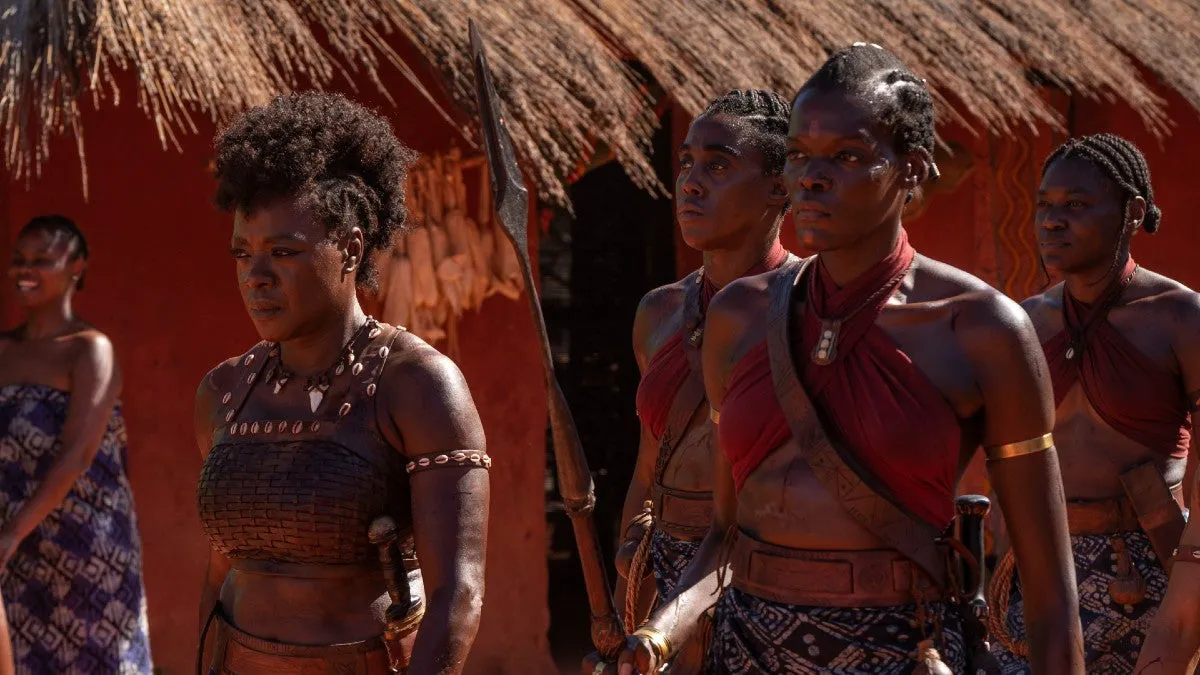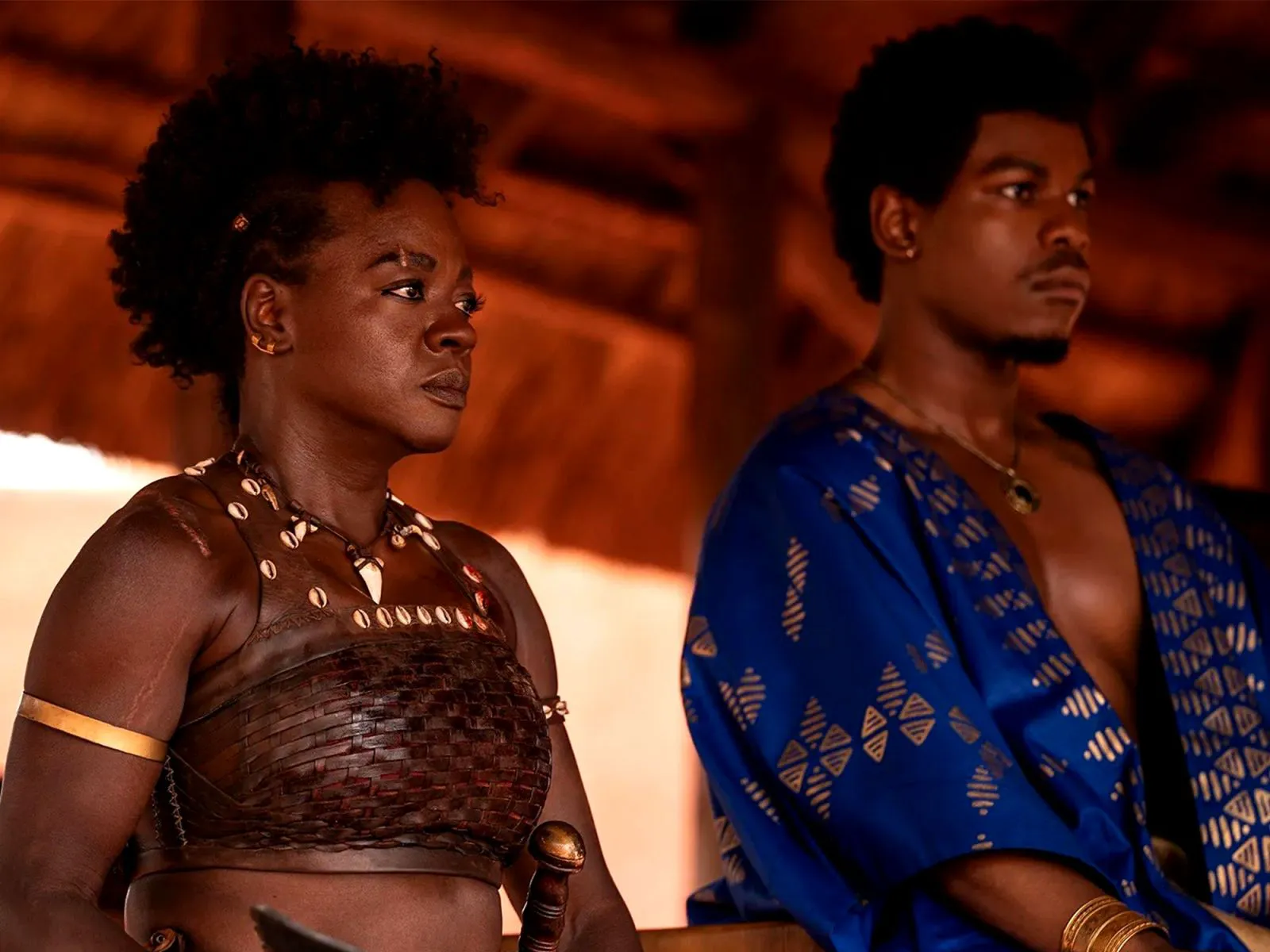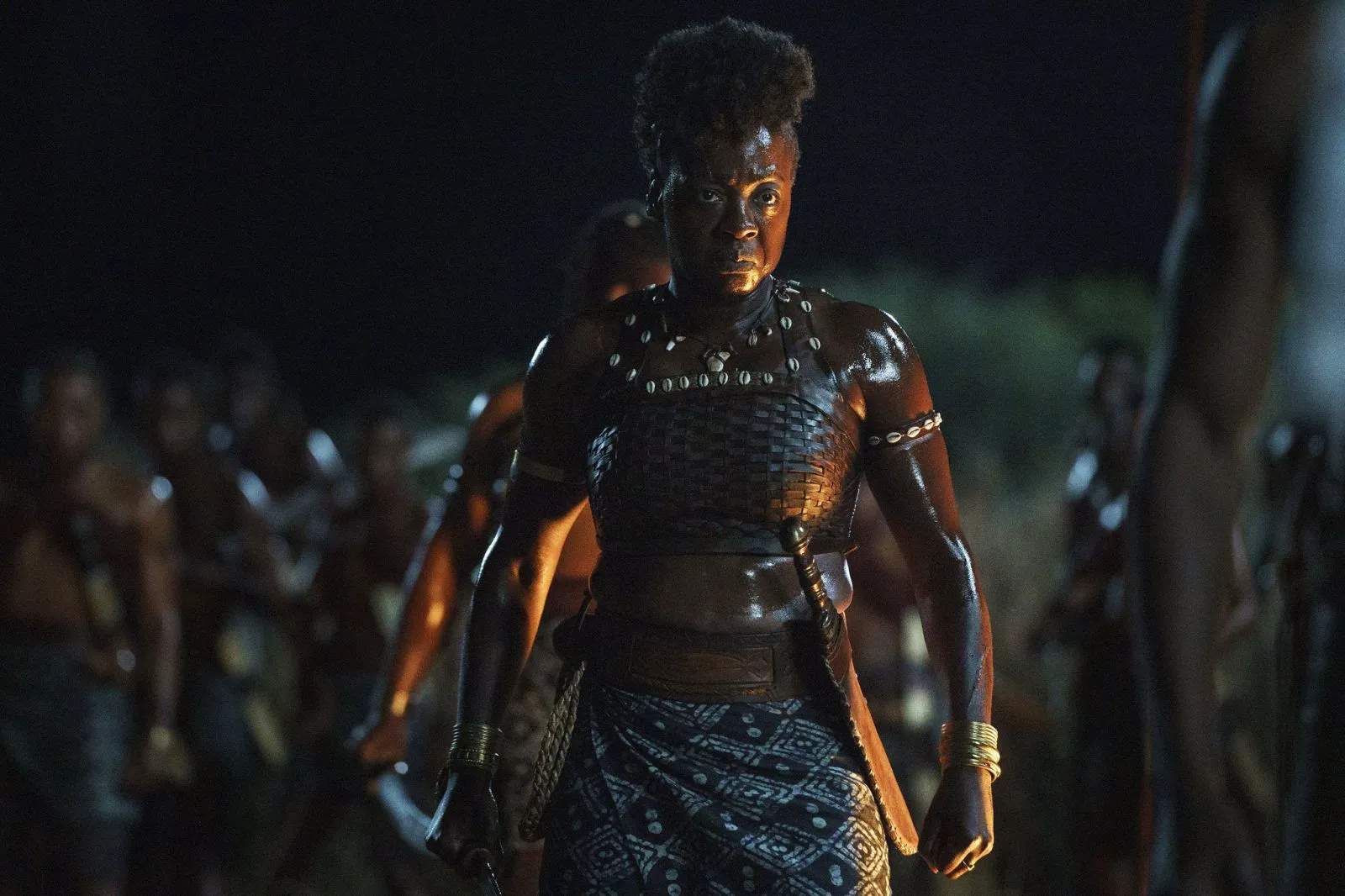The Woman King: A Story of Courage and Rebellion in 19th Century Africa
In 1823, Africa, the Agojie, an all-female military regiment, led by General Nanisca (Viola Davis), fiercely protects the Kingdom of Dahomey from the neighboring Oyo Empire. King Ghezo (John Boyega) faces a critical decision: continue collaborating with enemies in the slave trade or heed Nanisca’s call to war and export palm oil instead of people.

Viola Davis as Nanisca in The Woman King
The increased visibility of women in cinema over the last decade has paved the way for new narratives, once relegated to the margins of mainstream ideas and themes. Female directors and screenwriters are not only sharing their own experiences on screen but also sifting through the dusty pages of history to uncover forgotten heroines. The Agojie, the Dahomey Amazons, are such figures – warriors who chose service to the kingdom over traditional family life.
Inspired by Real Events
The film’s tagline, “inspired by real events,” suggests that it is less a history lesson and more an epic drama with a freely adapted plot. While the general details are rooted in the 19th century, most of the characters are fictional. Dahomey’s stance on the slave trade remains a point of contention. Director Gina Prince-Bythewood downplays the kingdom’s bloodthirstiness, whereas in reality, the state profited from selling people until Europeans banned the practice. This fact is important for understanding the historical context but is not crucial for enjoying the film as a work of art.

Viola Davis as Nanisca in The Woman King
Prince-Bythewood constructs a closed-off female world. It is 1823, and young women have virtually no rights. Each heroine carries a personal history of domestic abuse. Amidst the flourishing slave trade and colonialism, women (unless they are warriors) are seen as the lowest caste. To illustrate the tragic fate of millions, the director weaves in the story of Navi (Thuso Mbedu), an ordinary girl whose father repeatedly tries to marry her off, but men reject the defiant and sharp-tongued bride. Eventually, Navi enters the palace as a gift to the king – another recruit for the Agojie army. It is no surprise that young girls and experienced women, those who refuse to bow to tyrants and wear the shackles of involuntary marriage, are the ones fighting against the injustice of human trafficking.

Viola Davis as Nanisca in The Woman King
A Familiar Yet Powerful Narrative
“The Woman King” occasionally follows predictable paths. To some extent, the battle scenes are more captivating than the individual characters’ personal struggles. The film is filled with familiar tropes: the relationship between a strict mentor and an arrogant student, the search for redemption for past sins, forbidden love. However, these dramatic conflicts pale in comparison to the demonstration of the Amazons’ talents. Watching them is like seeing a realistic and feminine version of “Black Panther.”
Gina Prince-Bythewood’s film is likely to garner attention from the Academy. This action film, starring the consistently stunning Viola Davis, is a serious Oscar contender. It features epic battle scenes, impressive acting performances, and a plot based on historical accounts. The wider audience is reintroduced to the fates of forgotten people whose struggles, sadly, are not celebrated in songs, but whose voices grow louder centuries later.